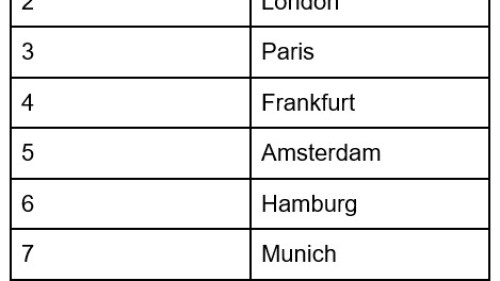Peter Ballon, global head of real estate for CPPIB Investments, which invests the assets of the Canada Pension Plan, is poised to assume the global chairmanship of ULI in July. He kicked off the 2021 ULI Virtual Spring Meeting with a keynote panel of industry leaders from Europe, the Asia Pacific region, and the Americas discussing global capital flows. They agreed that a large amount of capital remains on the sidelines, with investors searching the globe for the right opportunities. Differentiating the market trends associated with the pandemic that are likely to be short-lived from those that will be transformational is the challenge now.
Participants included Nathalie Charles, global head of investment management for BNP Paribas Real Estate Investment Management, which manages more than €30.1 billion (US$36.6 billion) of European commercial real estate; Goodwin Gaw, chairman and managing principal for Gaw Capital Partners, a Hong Kong–based private equity fund management company focusing on global real estate markets; Karen Horstmann, head of equity acquisitions for Allianz Real Estate, a global real estate investment and asset management company based in Munich; and Ralph Rosenberg, partner and global head of KKR Real Estate, a provider of equity and debt capital.
Who has #capital, and where are they #investing it? Global experts Peter Ballon, @cppib, Nathalie Charles, @bnppre, Goodwin Gaw, #GawCapitalPartners, Karen Horstmann, @allianz_real and Ralph Rosenberg, @KKR_Co share their insights during our first general session of the day. pic.twitter.com/CZYgVqtsXv— Urban Land Institute (@UrbanLandInst) May 10, 2021
Returning to Workplaces
Horstmann said she thinks that, six months ago, the staying power of the work-from-home phenomenon was overblown. “The pendulum swing is already starting to come back,” she said. People are recognizing the importance of in-office work with respect to their organizational culture, as well as their ability to attract and retain talent. Offices—and cities—are here to stay, but there is a need to rethink how they are used, she said.
Gaw added that “there is no work-from-home phenomenon whatsoever in Asia.” Instead, people’s social lives revolve around the workplace.
Moving from Cities?
When Ballon asked panelists if they thought the pandemic experience has increased the appetite for suburban real estate in the United States, Rosenberg noted that his firm is interested in major city centers and in the inner-ring-road suburbs. Employers who want to attract a young, vibrant, and diverse workforce should realize that those employees want the vitality of urban centers. But, he said, those employees also want a high quality of life and a lower cost of living. Beneficiaries will be nongateway cities such as Lyon, France; Bristol and Manchester, United Kingdom; and Charlotte, North Carolina, and Austin, Texas, in the United States, which hold that twofold appeal.
Gaw added that lifestyle-centered cities such as Bozeman, Montana, and Provo, Utah, are more attractive to young workers than are traditional bedroom suburbs outside major cities.
Consumer Demand and Preferences
China’s early move to shut down borders in response to COVID-19 outbreaks allowed for earlier reopening there, Gaw said. “You can see pent-up demand on the shopping side” in China, he noted, and that activity is spilling over to other Asian countries. “Vietnam has recovered quite quickly.” Also, countries that export to China, such as South Korea and Japan, are experiencing spillover of demand. China is encouraging domestic purchasing. “Geopolitical influences are forcing the government essentially to engineer their own growth inside of China,” Gaw said.
Horstmann said that in the United States, “people are coming out of hibernation.” She cited strong growth in gross domestic product and major steps the government took to boost the economy, adding, “I see lots of promise in the U.S.”
The words “experiential” and “retail” have been coupled for years as the recipe for brick-and-mortar retail to survive the popularity of online shopping. Panelists elaborated on that theme, saying the descriptor “experiential” may soon be applied to other forms of real estate as well.
In China, some malls are “truly experiential,” Gaw said, adding that going to dinner at a mall can make people feel as if they are on a movie set. The phenomenon is not restricted to the largest cities but is happening in second- and third-tier cities as well.
Horstmann said that even the office sector, which she said has been “one of the dinosaurs,” may need to focus more on the user’s experience.
While disagreeing with the “dinosaur” connotation, Charles noted that the technologies used in offices have developed significantly over the past 10 years. She asked whether office real estate will continue to be regarded in a traditional way—as the provision of space—or if developers and operators will go deeper into the service aspects of providing attractive workplaces. “I don’t think the office is going to disappear at all,” she said. But that balance between providing space versus supplying services could shift.
Horstmann said, “It’s undeniable we need to pay attention to the experience of that space, the experience of that building.”
Real Estate Sectors
Charles noted that though the U.S. nursing home market was disrupted by the pandemic, there was “zero disruption of the market in Europe.” The investment appetite, driven by demographics, is “huge,” with the number of elderly people in Europe expected to increase over the next 20 to 30 years. “It’s a fantastic play,” she said.
She also expects a rebound in hospitality real estate in 2022, though the balance between tourism and business travel may never be the same.
Life sciences, data centers, and single-family rental housing were also favored by panelists. However, Gaw said not to expect further Chinese investment in single-family rental housing. “The U.S. is not welcoming to Chinese investors or tourists buying homes in the U.S.,” he said.
When Ballon asked panelists when the beleaguered fashion mall sector would finally become attractive to opportunistic investors, they showed little enthusiasm for the risk. “I don’t think retail, broadly, has repriced enough to even make it seductive for me to consider,” Rosenberg said, particularly over an anticipated three- to five-year holding period. “If I can buy a 92 percent–leased garden apartment in the suburbs of Charlotte [North Carolina], why not just do that?”
Asked by Ballon to rank their favorite real estate sector and country, the panelists replied as follows:
- Gaw: data centers in China;
- Charles: offices in post-Brexit London;
- Rosenberg: logistics in the United Kingdom; and
- Horstmann: logistics and residential in the United States.


